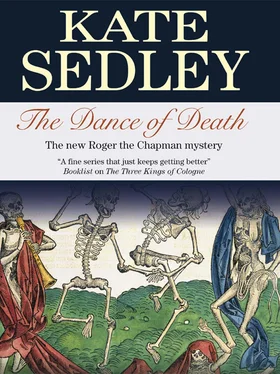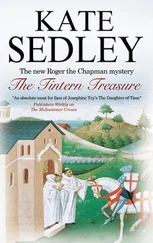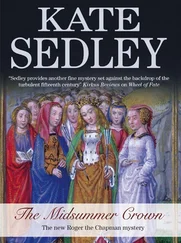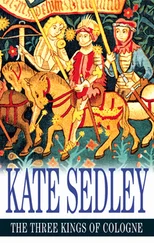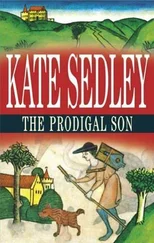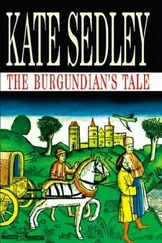Kate Sedley - The Dance of Death
Здесь есть возможность читать онлайн «Kate Sedley - The Dance of Death» весь текст электронной книги совершенно бесплатно (целиком полную версию без сокращений). В некоторых случаях можно слушать аудио, скачать через торрент в формате fb2 и присутствует краткое содержание. Жанр: Исторический детектив, на английском языке. Описание произведения, (предисловие) а так же отзывы посетителей доступны на портале библиотеки ЛибКат.
- Название:The Dance of Death
- Автор:
- Жанр:
- Год:неизвестен
- ISBN:нет данных
- Рейтинг книги:3 / 5. Голосов: 1
-
Избранное:Добавить в избранное
- Отзывы:
-
Ваша оценка:
- 60
- 1
- 2
- 3
- 4
- 5
The Dance of Death: краткое содержание, описание и аннотация
Предлагаем к чтению аннотацию, описание, краткое содержание или предисловие (зависит от того, что написал сам автор книги «The Dance of Death»). Если вы не нашли необходимую информацию о книге — напишите в комментариях, мы постараемся отыскать её.
The Dance of Death — читать онлайн бесплатно полную книгу (весь текст) целиком
Ниже представлен текст книги, разбитый по страницам. Система сохранения места последней прочитанной страницы, позволяет с удобством читать онлайн бесплатно книгу «The Dance of Death», без необходимости каждый раз заново искать на чём Вы остановились. Поставьте закладку, и сможете в любой момент перейти на страницу, на которой закончили чтение.
Интервал:
Закладка:
Eloise, on the other hand, seemed suddenly to revive like someone given a refreshing draught of wine. Her hitherto drooping form straightened up, and her head began to turn this way and that as she looked eagerly about her. This part of the city, she informed me, was known as La Ville. The Town. We were riding south, she went on, towards the Île de la Cité and beyond that, on the far bank of the Seine, was the suburb of the Université, so called for the simple and obvious reason that it was where the various colleges were situated, amidst the surrounding sprawl of houses, fields and churches. As far as she was concerned, she had come home.
I, in contrast, was feeling more and more like a stranger in a strange land — which, of course, I was. But up until then, in the towns and countryside we had passed through, I had not felt too alienated. There had been many similarities to England. Paris, however, was altogether different. The Rue Saint-Denis was packed with people and traffic — ten or eleven carts, I’d swear, to every furlong of road — and everyone jabbering away, nineteen to the dozen, in an incomprehensible language. And not only talking, but also gesticulating wildly. (Why, oh, why do our French neighbours find it so necessary to discourse with their arms as well as their tongues?) And the smell was almost overwhelming.
‘That’s the market,’ Eloise explained, waving a hand vaguely to her right. ‘Les Halles.’ She turned her head. ‘How much further, John?’
‘Keep going,’ he answered roughly, but in a voice weakened by exhaustion. ‘Cross by the Pont aux Meuniers into the Rue de la Barillerie, then wait. Someone should be meeting us there. A house has been rented for us. At least, I hope to God it has and nothing’s gone wrong.’ He crossed himself devoutly. His face looked grey with fatigue, a man at the end of his tether.
The bridge by which we eventually crossed, leading from the quayside to the Île de la Cité seemed to be one of three — two of stone and the third, ours, built of wood. I did rouse myself sufficiently to enquire of Eloise why all the houses on them had green roofs, to which she replied that they had turned that colour from mould and water vapour off the river. This was not reassuring and almost immediately I started to cough.
My companion laughed unfeelingly. ‘Don’t tell me you’re falling into a consumption,’ she protested, a petty jibe I chose to ignore.
The Rue de la Barillerie was almost a continuation of the Pont aux Meuniers, one of the warren of narrow streets that covered the island and surrounded the great cathedral of Notre-Dame. As we left the quayside — where, in spite of the advanced hour of the afternoon, washerwomen were still down on the strand, pummelling and soaking their washing, calling to one another and shrieking with laughter at the latest ribald joke — and plunged into the gloom between the overhanging houses, a man detached himself from the shadows of a doorway halfway along the street and walked towards us. I recognized him at once as the person I had seen talking to John Bradshaw outside the inn at Calais.
He said something in French and jerked a thumb back across his shoulder, indicating a tall, narrow house, wedged between two similar neighbours, its frontage originally stained red and green, but whose paint had now peeled away, leaving only traces of the colours as a memento of past glory.
‘Journey’s end,’ John Bradshaw said, and never did words fall more kindly on my ears. ‘This house will be our lodging while we are in Paris, and a woman has been hired to wait on us and attend to our needs. Her name’s Marthe; that’s all you need to know. She speaks a little English, but not much, so, Roger, you’ll have to rely on Mistress Eloise and myself to translate for you. Philip!’ He spoke sharply to Philip Lamprey, who was slumped forward in his saddle, the usual picture of dejection. ‘There’s stabling for the horses in the next street. Jules here will lead two of the animals and show you the way.’ John eased himself to the ground with the sigh of a man weary unto death. ‘See them fed and watered and bedded down properly for the night, then return here. Do you understand?’ A brief nod was the only indication that he had been heard. John sighed and turned back, giving his hand to Eloise to help her dismount. ‘You’ll be in need of your supper, my dear,’ he said in the gentler tone he reserved for women, as being delicate creatures in constant need of male strength and reassurance. (It was this attitude that convinced me he had probably never been married and had most certainly never had daughters of his own.)
My memory of that first night in Paris is lost in a haze of lassitude similar to that of our very first night on the road after quitting London. Marthe, contrary to my expectations, turned out to be a jolly, red-faced woman and an excellent cook, who seemed to find it excessively amusing each time I addressed her by the English version of her name. To begin with, I did it simply to annoy Eloise (who was convinced, rightly, of my laziness where trying to speak a foreign language was concerned), but I continued doing so just for the pleasure of watching Marthe shake all over like a jelly whenever I slipped an arm round her ample waist and called her ‘Martha, my lover’ in the best West Country tradition.
Our housekeeper apart, however, nothing remains in my memory except eating and then climbing the stairs to the first-floor bedchamber I was to share with Eloise during our stay in Paris. I don’t recall that she even went through the nightly ritual of undressing behind the bed-curtains, so accustomed had we grown to one another’s company. But I do remember waking in the middle of the night, in a sweat, conscious of a strange city all around me with its odd nocturnal noises, and uncomfortably aware that I must shortly begin my quest to find Robin Gaunt and his wife, a task of impossible proportions with which I should never have been burdened. With which no man should have been burdened, I thought resentfully. But even fear and resentment failed to keep me awake for long, and almost before I knew it, a faint, misty sunlight was rimming the shutters and Marthe was knocking at our bedchamber door with a pitcher of hot water for our morning needs, while the tantalizing smells of hot oatcakes and bacon collops wafted up the stairs.
Shaved, washed, hair combed, teeth cleaned, dressed in brown hose and yellow jerkin, I descended to the small parlour overlooking the street, where John Bradshaw, no longer forced to play the servant, except when we went abroad, joined Eloise and myself at table.
‘Where’s Philip?’ I asked.
John shrugged. ‘Prefers to eat in the kitchen with Marthe. He seems to have taken a fancy to her. Leastways, he appears in a slightly happier mood than he’s been in since we left London, although that ain’t saying much. He’s managed a couple of smiles for her, and she grins and nods at him even though neither can understand a word the other’s saying.’ He took a swig of ale and continued, ‘Now! We’re in luck. Jules tells me that your cousin — ’ he nodded at Eloise — ‘won’t be in Paris until Monday at the earliest. King Louis has delayed sending him until next week. Indeed, there was a rumour that Maître le Daim might not be coming after all. But now the king has changed his mind again, and if all’s well, he’ll be here on Monday, like I said.’
‘Do we know where Cousin Olivier will be lodging?’ Eloise enquired, delicately wiping her lips on the edge of a green, squirrel-trimmed sleeve.
John Bradshaw shook his head. ‘Not yet. Jules will let us know as soon as he finds out. Meantime, I suggest you two get acquainted with the city, and you, Roger, try and look like a haberdasher and hawk around a few of those samples of cloth and other goods you brought with you.’
Читать дальшеИнтервал:
Закладка:
Похожие книги на «The Dance of Death»
Представляем Вашему вниманию похожие книги на «The Dance of Death» списком для выбора. Мы отобрали схожую по названию и смыслу литературу в надежде предоставить читателям больше вариантов отыскать новые, интересные, ещё непрочитанные произведения.
Обсуждение, отзывы о книге «The Dance of Death» и просто собственные мнения читателей. Оставьте ваши комментарии, напишите, что Вы думаете о произведении, его смысле или главных героях. Укажите что конкретно понравилось, а что нет, и почему Вы так считаете.
